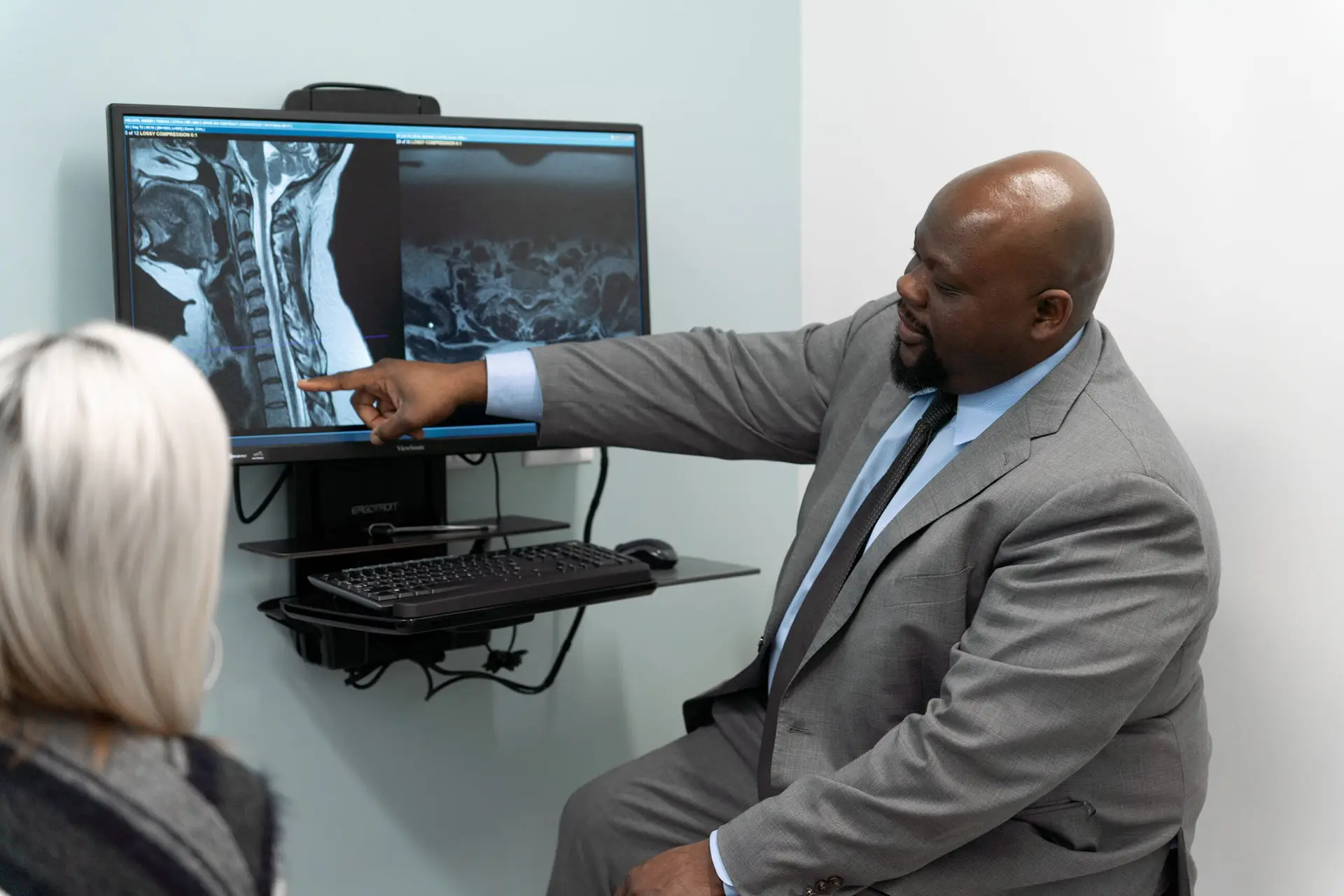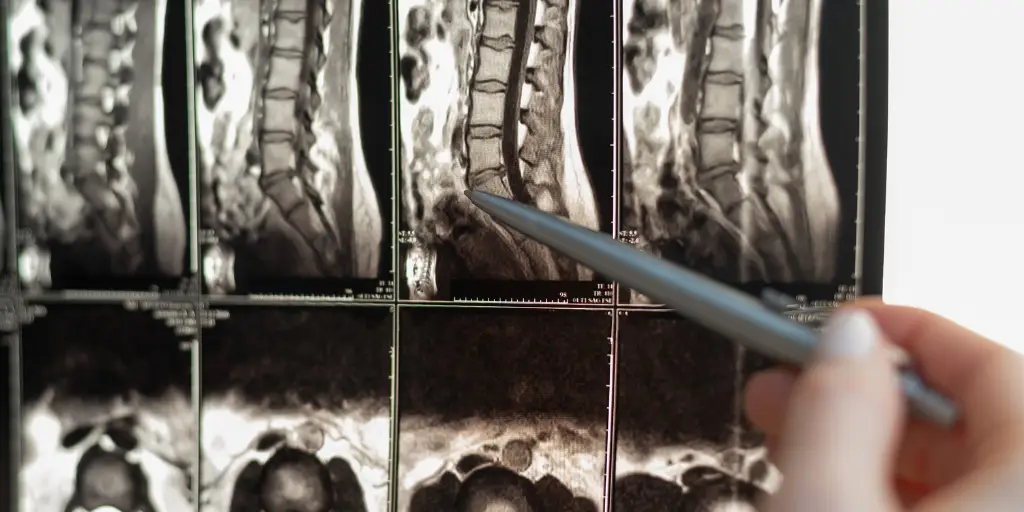Since the beginning of civilization, as far back as 5000 – 3000 BC, humans have consumed nicotine from inhaling tobacco smoke. While educational efforts have reduced the number of daily smokers and those who use electronic tobacco “vapes,” the numbers are still disturbing. According to the National Institute of Drug Abuse, 15.6% or about 43.6 million people reported smoking cigarettes and. 4.7% (13.2 million people) reported vaping nicotine in the past 30 days.
More than a hundred years of medical research has pointed to the highly addictive nature of nicotine, and the fact that smoking is a leading cause of lung and heart diseases. These facts are often referenced in smoking cessation campaigns. However, smoking and nicotine consumption also affects a part of the human body that may be surprising to many.
Surgeons, like those at Texas Back Institute, have seen the negative impact of nicotine on conditions that cause back pain and on patients who are recovering from spine surgery.
The spine specialists at Texas Back Institute have been at the forefront of explaining the risks of smoking on the outcomes of surgical procedures and helping patients kick this very dangerous habit. This concern for patient health is another reason to set an appointment if back pain is a concern.

A Spine Surgeon Examines the Effects of Smoking on Patients
Dr. Adewale Adeniran, a Spine Surgeon from Texas Back Institute, has seen how this addictive substance can wreak havoc on the spine and on surgical procedures.
“Smoking can have a terrible effect on your spine health,” Dr Adeniran said. “For example, it has been found to accelerate degenerative disc disease in both the neck and low back regions of the spine. In general, patients who smoke can experience an increase in the progression of conditions we treat with spine surgery, causing more pain and worse surgical outcomes.”
Dr Adeniran continued, “There have been a broad range of studies done on the impact of smoking and spine health. The most revealing studies have been done on patients who have had spine surgery. Smoking affects the surgical outcomes dramatically.
“For example, with patients who have had fusion procedures smoking has shown to result in a failure-to-fuse, resulting in the need to have a revision surgery. With a fusion procedure, two vertebrae are attached with metal screws and rods that are designed to hold the spine in place and encourage bone growth to make the fusion hold together. The patient’s bone must bridge across the joint and form into a solid block of bone. If it fails to do so, in time, there will be some motion across this metal hardware and eventually it will fatigue and the spine will not properly fuse.
“With smokers, because they fail to heal in a timely manner, there is a much higher risk of hardware failure. This is because there is less blood flow to the bone graft. When this occurs, the fusion fails and the patient gets a recurrence of the issues such as back pain, leg pain, weakness in their legs. We are then forced to perform revision surgery, and this is usually more complicated than the original procedure, “ Dr Adeniran added.
There are also other conditions that can be affected by smoking.
Dr. Adeniran noted, “Among patients who have not had spine surgery but have conditions such as cervical myelopathy, which is a condition in which a patient’s spinal cord is being squeezed, smoking seems to accelerate the progression of that condition. This causes greater disability than that found in people who don’t smoke.
“In addition, there have been cases associated with lumbar spinal stenosis and chronic low back pain as well.” Dr Adeniran said.

There have also been genetic studies done to determine why smoking is bad for spine health. They have suggested that some of the chemicals found in cigarette smoke affect the cartilage cells on a genetic level to cause them to degenerate faster.
Dr Adeniran said, “Smoking can cause blood vessels to constrict. When this occurs, the discs found between vertebrae, which have a limited amount of blood supplies and therefore nutrients to start with, have even less blood supply when this constriction occurs.”
Do Smoking Cessation Products Help or Hurt?
Overcoming an addiction to smoking is difficult, but spine damage is worse. This reality leads some smokers to seek out alternatives to smoking.
Dr. Adeniran notes, “Anytime I have a patient who is a smoker, I strongly recommend that they stop smoking, understanding that this is something that’s hard to do. Nicotine is a major culprit for failed surgical outcomes. That being noted, the smoke itself can cause an increase in bleeding, especially in the cervical area of the spine. So, if a patient is using non-smoke and therefore non-inhaled tobacco, there might be a smaller incidence of post-surgical impact. However, a patient should be aware that using nicotine gum or chewing tobacco does not preclude them from having surgical problems.”
So, is there any value in these non-inhaling smoking cessation products?
“The real benefit of these nicotine alternatives – such as gums or patches – is that they act as a bridge to lose the craving for nicotine entirely,” he said. “While cigarette smoke has some unique risk tied to it, the nicotine substance harms the bones and negatively affects surgical outcomes, even if it is ingested without smoking.
Many long-time smokers have managed to kick the habit by taking part in The Great American SmokeOut, sponsored by The American Cancer Society. It occurs each year on the third Thursday of November.
If you would like to view the entire interview with Dr. Adeniran, click here.


